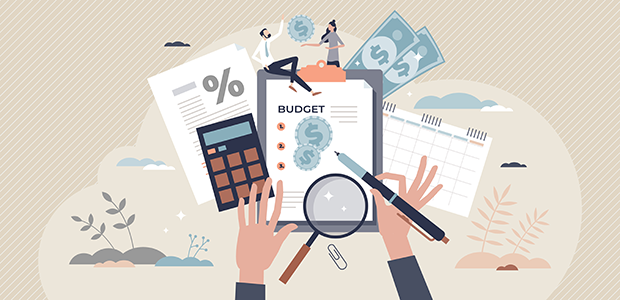
Simple bookkeeping for small business owners
If you're thinking of starting a small business, it won't do you good if you don't know how to keep track of your money. Bookkeeping involves more than just maintaining receipts; it includes preparing financial statements and taxes. In this quick-start guide, we'll introduce you to bookkeeping tips so you can get started in the right direction.
Bookkeeping: What is it?
Bookkeeping is critical to the profitability of your company. It allows you to keep track of how much money is coming in and going out of your bank accounts, so you know how much cash you have available. It also aids in forecasting how much earnings are required to operate your business and pay monthly expenses such as stock, services, taxes, and suppliers.
Importance of bookkeeping
As a small business owner, you must ensure that you have the tools necessary to manage your company properly. This involves understanding how much you receive and how much you owe. Bookkeeping assists by saving all receipts and organising them into financial statements, allowing you to evaluate how well your business is doing easily.
Accounting vs bookkeeping
Bookkeeping and accounting are specialisations of finance, but with different purposes. Bookkeeping refers to the day-to-day administrative chores that keep track of the money your company receives and spends. At the same time, accounting is a high-level form of business finance that examines a company's financial health through reports and forecasts; both are the key to successful company management.
Helpful tips for bookkeeping
Getting started with bookkeeping can be an overwhelming task for small business owners, and it doesn't have to be! These tips will help you get your business books up and running.
Maintain payment records
You will be able to find information quickly and simply if you keep a record of every payment and make a note of the date it was sent or received so that you can locate it later.
Pick a method
When you set up your business, you'll have to decide whether to use cash basis or traditional accounting. This can be confusing, so talk to a professional before committing.
Don't miss deadlines
Don't get caught in the trap of late payments. If you're working with clients before they've paid you, set a deadline for payments, and this will prevent you from getting stuck without cash and keep your business running smoothly.
Claim allowable expenses
Getting your tax return right is essential. You can claim unclaimed business expenses on your tax return, but you must have a receipt for them. The good news is that most small businesses can claim more unclaimed business expenses than they think.
Create monthly reports
Keeping track of your business's finances is one of the best ways to ensure you don't get caught off guard by unpleasant surprises. Monthly reports that include a profit-and-loss statement, balance sheet and other key financial information will help you see how well your business is doing.
Prepare a tax budget
Your taxes can be hard to figure out, and that's why you need to make sure you have enough money in your budget, so you're ready on time. For the Self-Assessment deadline on January 31st, keep in mind that if it's going to be your first year running a business, you'll need to pay the taxes for that year and the first part of the taxes for the next year all on the same day, it's called ‘payment on account’.
Our conclusion on bookkeeping for small businesses
Clever bookkeeping is about having a broad understanding of the entire picture. You need to have a firm grasp on how you're doing with your cash flow and expenses, and you should have a solid understanding of the tax implications of each outcome. Track your successes and pitfalls and be ready to use your learned lessons to adjust business models accordingly.


